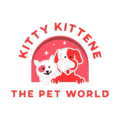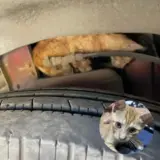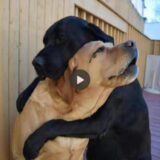As dog owners, we all want the best for our furry companions, and that includes providing them with a healthy and balanced diet. While some human foods can be shared with dogs in moderation, there are certain foods that can be extremely dangerous dog foods and even life-threatening for our canine friends.
Understanding what foods are safe and unsafe for your dog is crucial when you have a canine companion and occasionally share your meals with them.
In the article, we will discuss the typical human foods that should be avoided for dogs and the potential risks associated with feeding them these items.
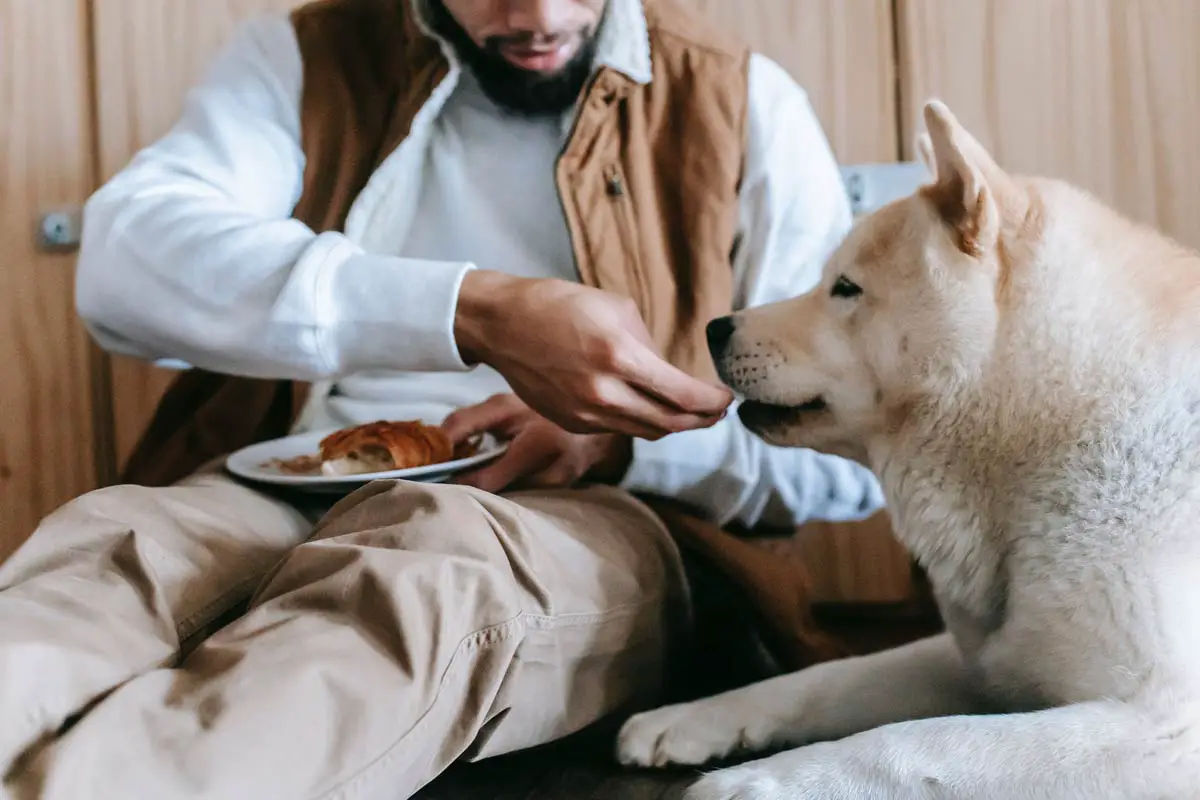
Foods Your Dog Should Never Eat
While dogs primarily thrive on a meat-based diet, incorporating certain fruits and vegetables can provide them with valuable nutrients. However, it is important to be discerning when selecting food for your dog and ensure that it poses no harm to their well-being.
1. Alcohol
Alcohol consumption can have severe consequences for dogs. Even small amounts can lead to alcohol poisoning, resulting in symptoms like vomiting, disorientation, lack of coordination, and in extreme cases, respiratory failure. Keep alcoholic beverages far away from your dog at all times.
2. Avocados
While avocados are often considered a superfood for humans, they may not agree well with dogs. Although dogs tend to tolerate avocados better than horses and birds, it can still be challenging for them to digest. Consuming avocados in large quantities can potentially lead to cardiovascular issues in dogs.
3. Bones
Although many people give bones to their dogs, they can actually be very dangerous. Cooked bones can splinter and cause serious damage to a dog’s mouth, throat, or intestines. Stick to appropriate chew toys and treats instead.
4. Caffeine
Caffeine, found in coffee, tea, and other caffeinated beverages, is dangerous for dogs. It can affect their nervous system and heart, causing restlessness, increased heart rate, tremors, and in severe cases, seizures. Ensure your dog does not have access to these beverages.
5. Candy
Sugar is unnecessary and hazardous in your dog’s diet. While there may be occasions when you allow them to sample a small sugary treat, even a slight excess can lead to negative effects. The sugars and preservatives found in candies can induce hyperactivity and elevate their heart rate. Furthermore, excessive consumption can ultimately result in diabetes and unhealthy weight gain.
6. Chocolate
It is crucial to never allow dogs to consume chocolate. This is not merely an urban myth, as chocolate contains toxic substances called methylxanthines, which act as stimulants that disrupt a dog’s metabolic process. Even a small amount of chocolate, especially dark chocolate, can lead to symptoms like diarrhea and vomiting. Ingesting a large quantity can result in seizures, abnormal heart function, and potentially fatal consequences. Ensure that chocolate is kept out of reach for your dog. If your dog accidentally consumes chocolate, promptly seek assistance from a veterinarian or contact the Pet Poison Helpline.
7. Ice cream
It is not advisable for dogs to consume ice cream. Despite its refreshing nature, ice cream is high in sugar, making it unsuitable for sharing with your dog. Furthermore, some dogs are lactose intolerant, which further complicates their ability to digest dairy products. To provide a sweet and icy treat, consider freezing chunks of strawberries, raspberries, apples, or pineapples as a healthier alternative for your dog.
8. Milk and Dairy Products
Most dogs are lactose intolerant and lack the enzyme to digest lactose properly. Feeding milk or dairy products can lead to digestive issues such as diarrhea and an upset stomach. Opt for lactose-free alternatives if you wish to give your dog a dairy treat.
9. Grapes and Raisins
Grapes and raisins may seem harmless, but they can cause kidney failure in dogs. Consumption can lead to symptoms such as vomiting, diarrhea, abdominal pain, and increased thirst. It’s best to keep these fruits away from your dog’s reach.
10. Macadamia Nuts
It is extremely important to never let dogs consume macadamia nuts as they are highly toxic to them. These nuts, belonging to the Protaceae family, can lead to severe symptoms such as vomiting, elevated body temperature, loss of mobility, and lethargy. Additionally, they have the potential to negatively affect the nervous system. Avoid feeding macadamia nuts to your dog under any circumstances.
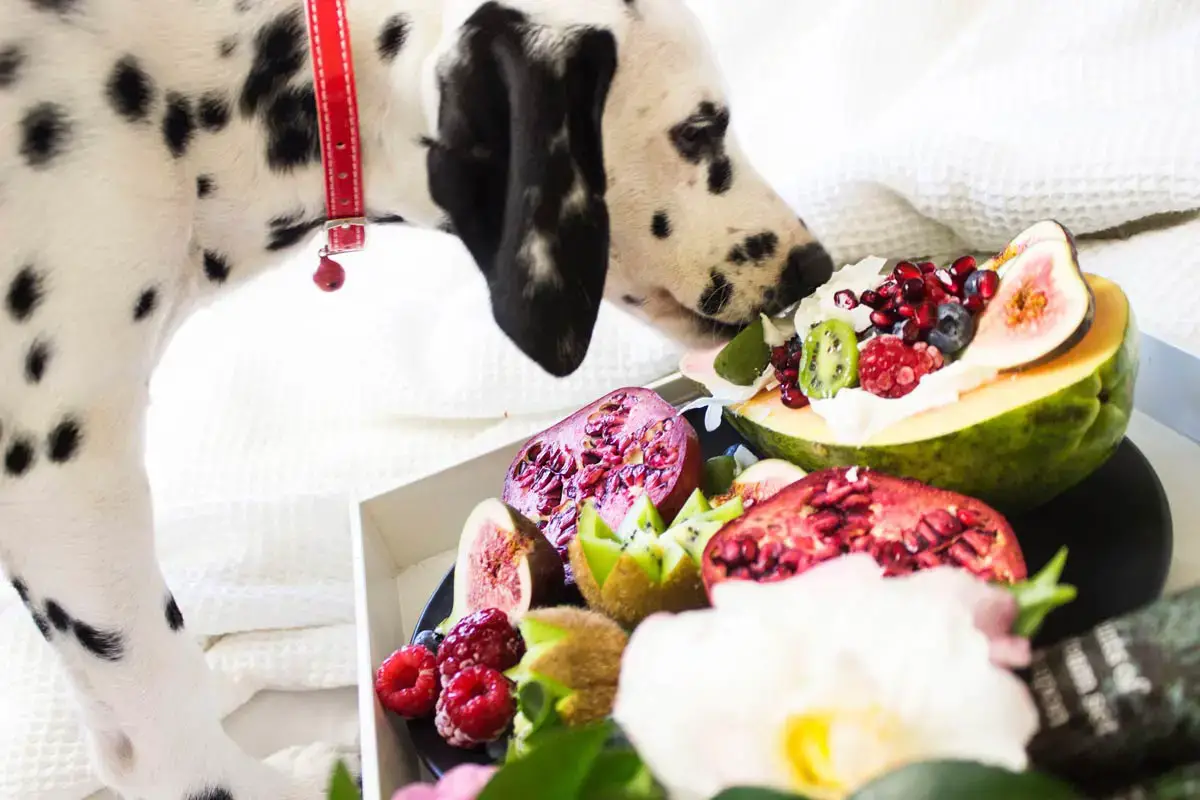
11. Almonds
It is advised to refrain from feeding almonds to dogs. While almonds may not be inherently toxic to dogs like macadamia nuts, they can pose risks such as esophageal blockage or tearing of the windpipe if not thoroughly chewed. Salted almonds, in particular, present a heightened danger as they can contribute to water retention, which can be potentially fatal for dogs with pre-existing heart conditions.
12. Cinnamon
It is advisable to refrain from feeding dogs cinnamon. Although cinnamon itself is not toxic to dogs, it is generally better to avoid it. Cinnamon and its oils can cause irritation to the delicate tissues inside a dog’s mouth, leading to discomfort and illness. Furthermore, excessive consumption of cinnamon can significantly lower a dog’s blood sugar levels, resulting in symptoms such as diarrhea, vomiting, irregular heart rate, and potential liver disease. Inhaling cinnamon in powdered form can also cause breathing difficulties, coughing, and even choking for dogs.
13. Onions and Garlic
Plants belonging to the Allium family can cause gastrointestinal irritation and, with prolonged exposure, can lead to damage to red blood cells and eventual anemia. Cats are particularly susceptible to the harmful effects of vegetables such as onions, chives, and garlic. If dogs consume these in excessive amounts, they can also experience significant illness.
14. Undercooked Meat and Eggs
Raw meat and eggs may harbor bacteria such as salmonella and E. coli, which can have detrimental effects on your dog’s digestive system. Additionally, raw eggs contain an enzyme called avidin that interferes with your pet’s biotin absorption. Consequently, this can result in skin and coat problems over time.
15. Mushrooms
Certain types of mushrooms are highly toxic to dogs and can cause severe symptoms, including vomiting, diarrhea, abdominal pain, seizures, and even liver damage. To be safe, prevent your dog from eating any wild mushrooms.
16. Xylitol
Xylitol is a sugar substitute commonly found in sugar-free gum, candy, and some baked goods. Ingesting xylitol can cause a rapid release of insulin in dogs, leading to a dangerous drop in blood sugar levels. Symptoms include weakness, seizures, and in some cases, liver failure.
17. Raw Dough
Raw dough made with yeast can be hazardous for dogs. When ingested, the yeast can ferment in their stomach, producing alcohol and causing bloating or even gastric dilation volvulus (GDV), a life-threatening condition.
18. Persimmons, Peaches, and Plums
The seeds, leaves, and pits of persimmons, peaches, and plums contain cyanide, which is toxic to dogs. Ingestion can lead to various symptoms, including difficulty breathing, dilated pupils, and even shock. Remove pits and seeds before sharing these fruits with your dog.
19. Fat Trimmings and Greasy Foods
Feeding your dog excessive fat trimmings or greasy foods can cause pancreatitis – a painful inflammation of the pancreas. Symptoms include vomiting, abdominal pain, loss of appetite, and potentially life-threatening complications.
20. Salt
Excessive salt intake can be harmful to dogs. It can lead to electrolyte imbalances, dehydration, and even sodium ion poisoning. Avoid feeding your dog salty snacks or high-sodium foods.
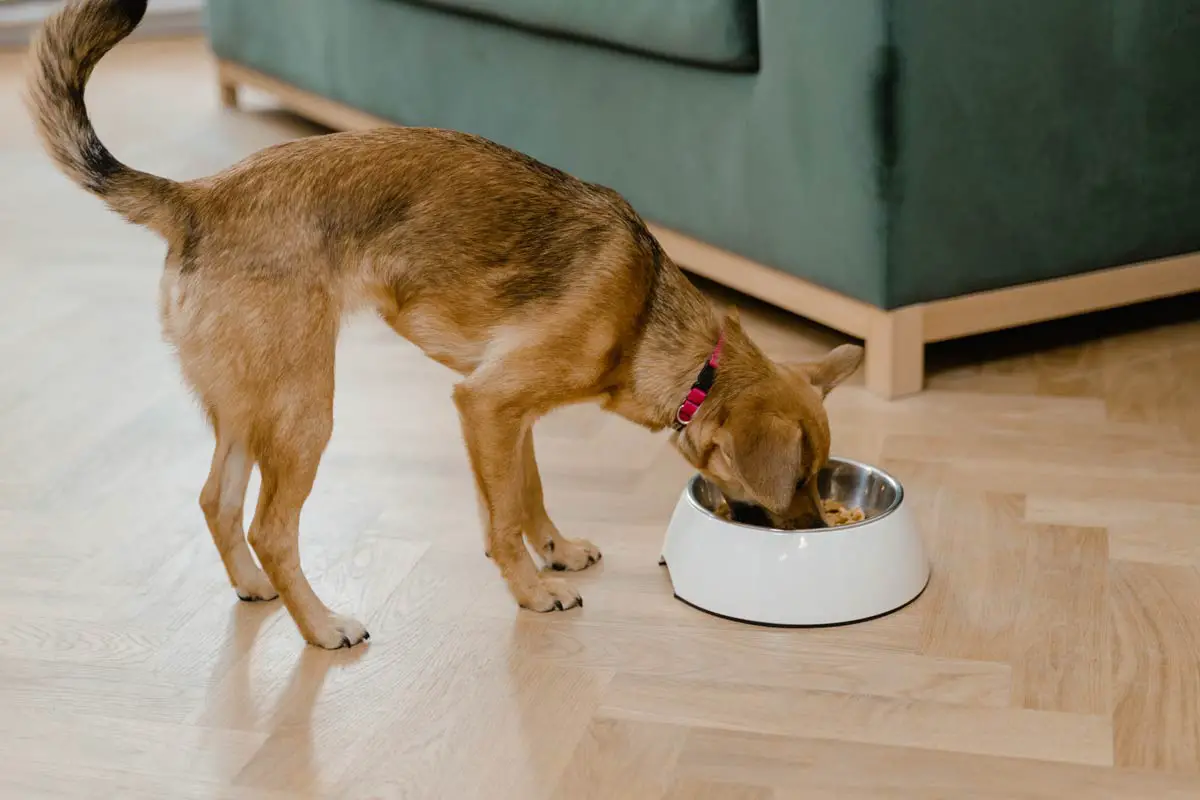
As responsible dog owners, it’s crucial to be aware of the dangerous foods that should never be given to our beloved pets. By avoiding these 20 hazardous foods, you can help ensure your dog’s well-being and prevent potential health emergencies. Remember to consult with your veterinarian if you suspect your dog has ingested something harmful. A healthy diet and regular veterinary care are vital in keeping your furry friend happy, healthy, and safe for years to come.
Remember, prevention is key when it comes to your dog’s health, so be sure to keep these dangerous foods out of your pet’s reach. Stay vigilant, stay informed, and provide your dog with a balanced diet tailored to their specific needs. Your furry friend will thank you with years of love and companionship.
Tags: Dangerous Dog Foods, Foods Your Dog Should Never Eat, Toxic Foods for Dogs, Harmful Foods for Dogs, Foods to Avoid for Dogs.
